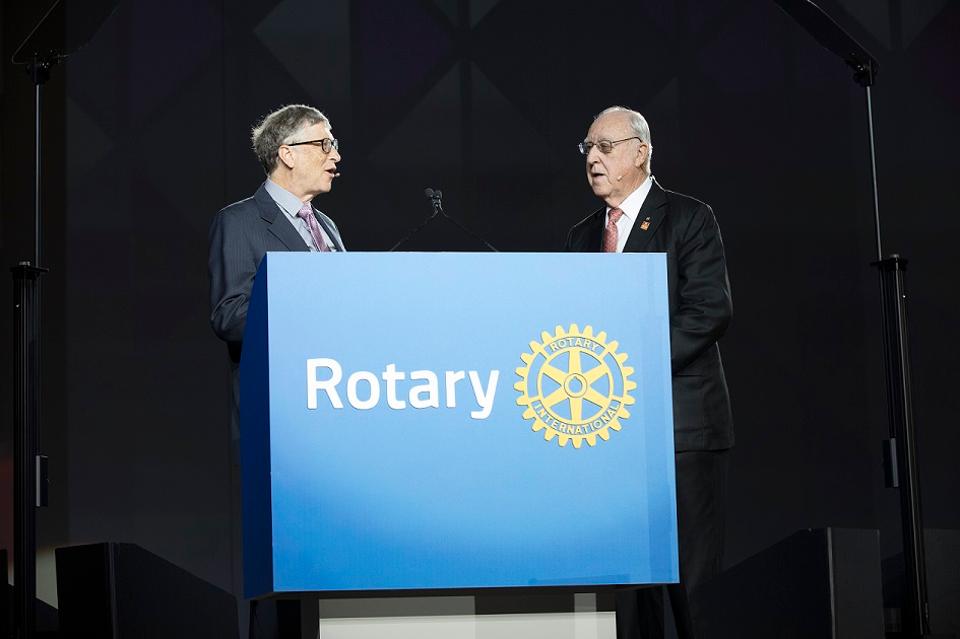As the world inches closer toward eradicating polio, the Bill and Melinda Gates Foundation and service organisation Rotary will spend nearly half a billion dollars in an effort to eliminate the disease over the next three years.

Bill Gates joined Rotary president John Germ to announce this pledge at the annual Rotary International Convention on Monday in Atlanta.
Beginning July 1, the Gates Foundation will match Rotary’s commitment to raise $50 million a year over the next three years, two-to-one.
That means another $450 million could go to eradicating the disease by 2020.
The matching programme adds to a previous pledge from 2013, when the Gates Foundation pledged to match Rotary contributions two-to-one, up to $35 million each year through 2018.
With this commitment, the two organisations will have together raised nearly $1.5 billion to fight polio since 2007.
The money will fund both the administration of oral vaccinations in the countries where children are still at risk for contracting polio, and increase disease surveillance efforts, like testing sewage water, to detect where the virus could still be circulating in communities.
“Some people, especially these days, think the world is getting worse,” Gates said in his speech at the Rotary convention.
“The progress on polio is a reminder of what people can accomplish when they are bold, determined, and willing to work together.”
When the Global Polio Eradication Initiative was started in 1988, polio paralysed more than 350,000 children annually in more than 125 countries.
Now, the number of cases has decreased by 99%. India had its last new case of polio in 2011.
Now the disease is considered endemic, or prevalent, in just three countries: Nigeria, Afghanistan and Pakistan.
In 2016 there were fewer than 40 new cases diagnosed in those countries.
And so far this year, there have only been five new diagnoses in Afghanistan and Pakistan; none in Nigeria.
“If we’re looking at only five cases this year, any case could be the last,” Carol Pandak, director of Rotary’s PolioPlus programme, told Forbes.
To reach a polio-free status requires at least three years with no new polio cases.
To get to that point, Rotary states that an additional $1.5 billion is needed.
While one dose of the polio vaccine costs just 15 cents, the investment in health care workers to deliver the vaccines, plus ongoing awareness campaigns, are more costly.
Children in at-risk countries must receive multiple vaccination doses during childhood.
And still, more than 400 million children a year are being immunised.
“We’re hopeful that some others will join Rotary and the Gates Foundation in making a commitment to help close that $1.5 billion funding gap,” Pandak said.
So far, total global donations have reached about $12 billion to eradicate polio, according to Rotary.
But once the disease is stopped, there’s expected to be $40 to $50 million in net health savings by 2035.
Along with fighting polio, the Gates Foundation, which has an endowment of $39.6 billion, is also focused on eradicating malaria.
To date, the foundation has committed nearly $2 billion in grants to fight malaria and over $1.6 billion to the Global Fund to Fight AIDS, Tuberculosis and Malaria.





